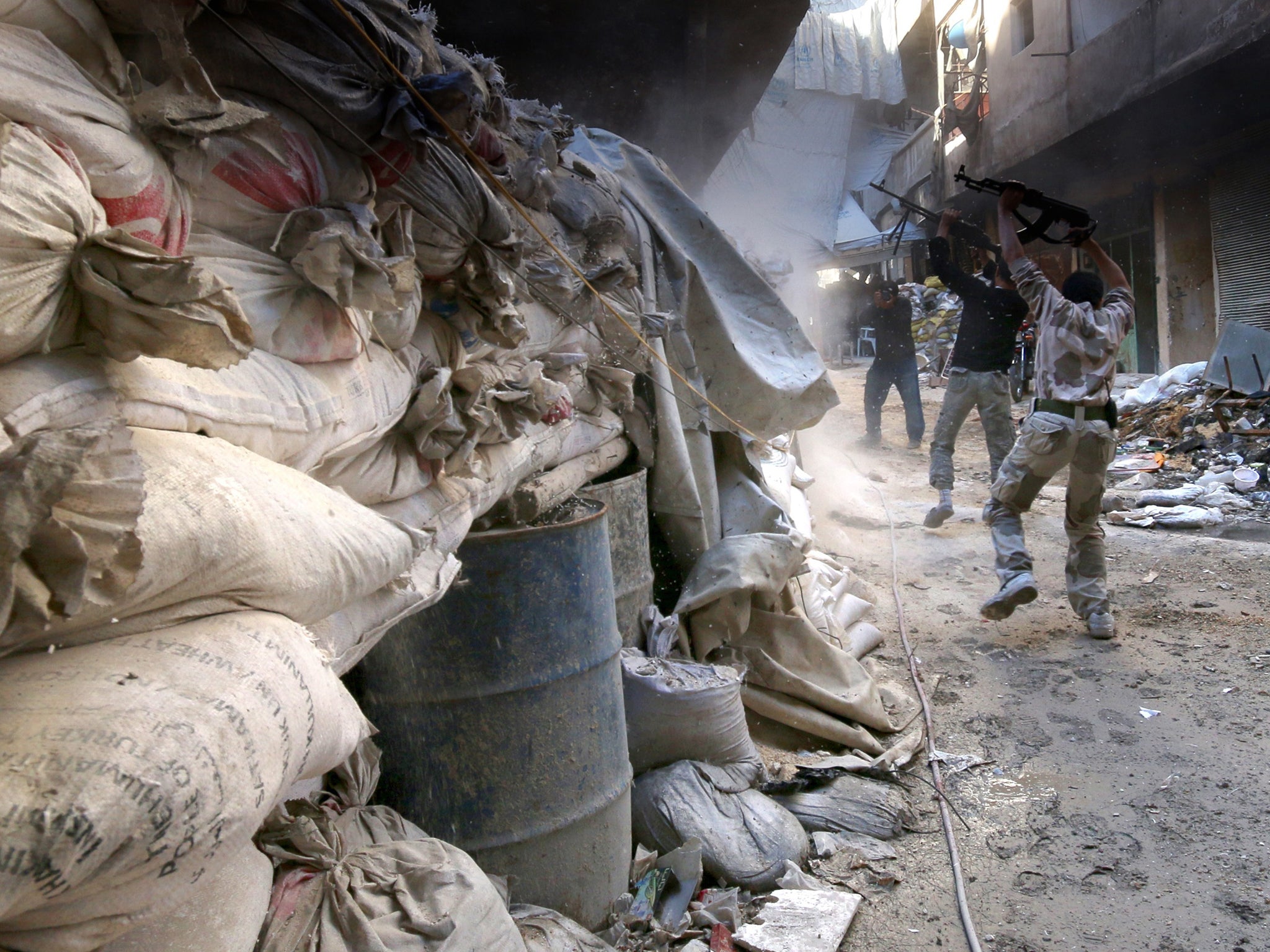War against Isis: British troops likely to train Syrian rebels nearly three years after similar plan failed
As military action in Iraq continues, UK now seeks to help Free Syrian Army in its fight against both militants and Assad

Britain is likely to provide training for rebels in Syria fighting on two fronts against Bashar al-Assad’s regime as well as Isis, The Independent understands.
The UK already has a team training the country’s military in Jordan, which is one possible location for the programme. The Free Syrian Army (FSA), the umbrella group for the ‘moderate’ opposition fighters, is already in camps there receiving instructions from CIA-funded security contractors.
But a number of other countries are under consideration for providing training bases for both the Peshmerga Kurdish militia and Syrian revolutionaries under plans being drawn up by the Pentagon.
Around 150 British military personnel are on the ground in Iraq, including members of the SAS and SBS. But it is believed that the UK is disinclined to place personnel in the country on a long-term basis for training; any courses, it holds, must be run in a third country.
British jets have hit Isis forces in support of a Kurdish advance in north-west Iraq. Most of the strikes have hit flat-bed trucks mounted with heavy machine-guns. Two Isis soldiers have been killed manning a check-point west of Baghdad and six others were killed by a Paveway IV bomb at Al-Hasakah, near Mosul.
The RAF has been focusing on strikes of opportunities rather than pre-planned. It is believed this was the strategy worked out with the US-run command and control centre at Al-Udeid air base in Qatar. A senior British liaison officer reports from there to London where the attack has to be personally signed off by Defence Secretary Michael Fallon.
A senior American diplomat said: “We all know that Isil [Isis] cannot be beaten by air power alone, that’s stating the obvious. But the land component must be provided by the Syrian resistance, the Iraqi forces, Peshmerga and, possibly, some regional states. All the indications are that our allies, the British, the French, the Australians will play a full part in training the indigenous forces.”
The likelihood of Western training for the rebels comes two years and 10 months after General Sir David Richards, the then head of British military, put forward a plan to create an opposition force of 100,000 vetted volunteers.
The Independent revealed at the time how Gen Richards hosted a confidential meeting with the military chiefs of France, Turkey, Jordan, Qatar, the UAE and a three-star US general to formulate the strategy. The issue was discussed by the Obama administration which decided, however, against taking it forward.
In the intervening period the moderate groups and the FSA have lost influence, territory and members to the jihadists, primarily Isis and Jabhat al-Nusra, who received lavish funding from Qatar and Saudi Arabia – two of the countries now in the US-led coalition bombing the same groups.
The UK government says there would be no need to get parliamentary approval to get involved in the training programme although it will be a significant step.
Until now, the UK had supplied ‘non-lethal’ aid to the Syrian rebels including protected vehicles, communications equipment and body armour: some of it had ended up in the hands of Isis and Jabhat al-Nusra, another Islamist extremist group which has links to al-Qaeda.
Shifting alliances and interchange of fighters between the rebels have made it extremely difficult to even determine who exactly is the enemy. Al-Nusra, hit by missile strikes from the US-led coalition, has been recently fighting against Isis alongside supposedly pro-Western groups. It is this “confused face of battle”, say Western military planners, which is making it harder to set up training facilities.
Mr Cameron has stated he would ask the Commons before extending air strikes from Iraq to Syria. UK forces, however, would be free to act across the border without parliamentary approval in the face of an imminent humanitarian crisis or if British lives, such as hostages, were at risk.
Join our commenting forum
Join thought-provoking conversations, follow other Independent readers and see their replies
Comments